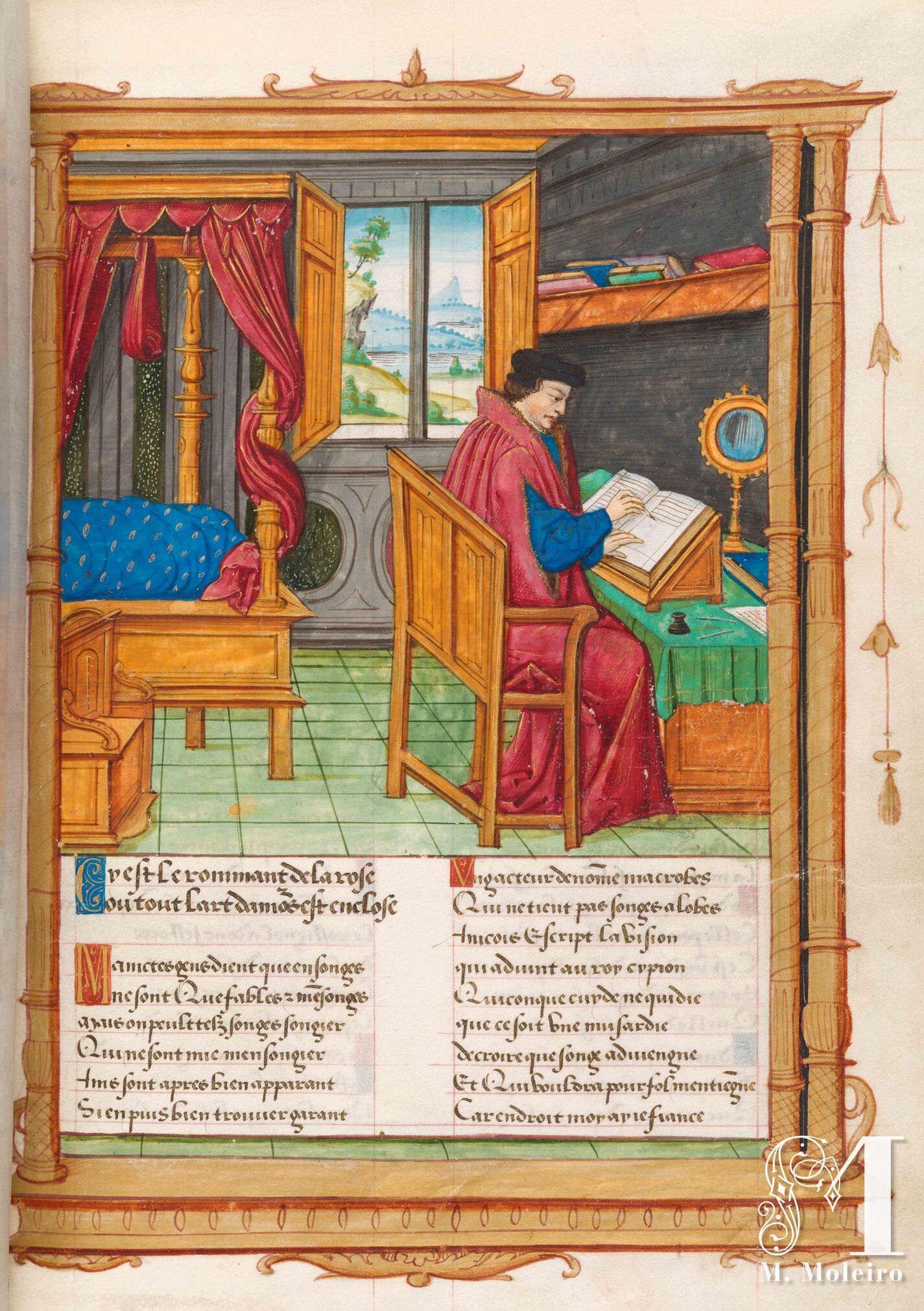The fragment describes the opening miniature of the manuscript of the Roman de la Rose. In the image, a scribe is sitting in a writing room, ready to copy the poem. He is dressed in attire from the time of Francis I of France. Beside him, there are writing utensils, a bound book, and a non-reflective mirror. An ostentatious bed and an open window overlooking a spring landscape complete the scene.
The miniature portrays the scribe as a scholarly humanist. Hence the text, which was written much earlier, is updated by placing the scene in the time of Francis I. The image symbolizes the realization of the dream, as the poem is an allegorical dream.
It is the Romance of the Rose | All things mere folly seen in dream, |

The fragment describes the opening miniature of the manuscript of the Roman de la Rose. In the image, a scribe is sitting in a writing room, ready to copy the poem. He is dressed in attire from the time of Francis I of France. Beside him, there are writing utensils, a bound book, and a non-reflective mirror. An ostentatious bed and an open window overlooking a spring landscape complete the scene.
The miniature portrays the scribe as a scholarly humanist. Hence the text, which was written much earlier, is updated by placing the scene in the time of Francis I. The image symbolizes the realization of the dream, as the poem is an allegorical dream.
It is the Romance of the Rose | All things mere folly seen in dream, |